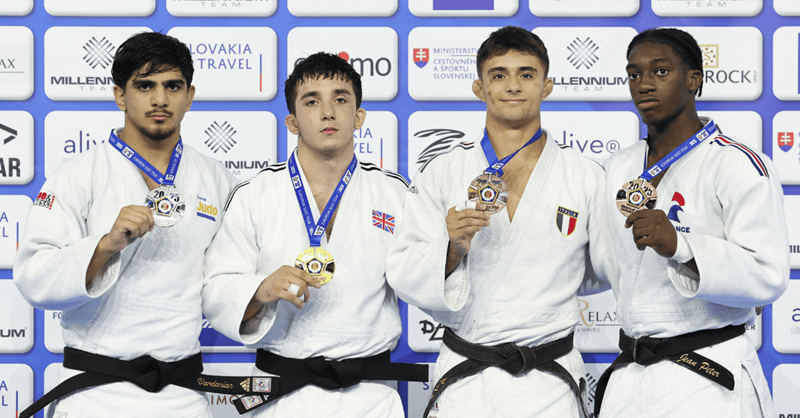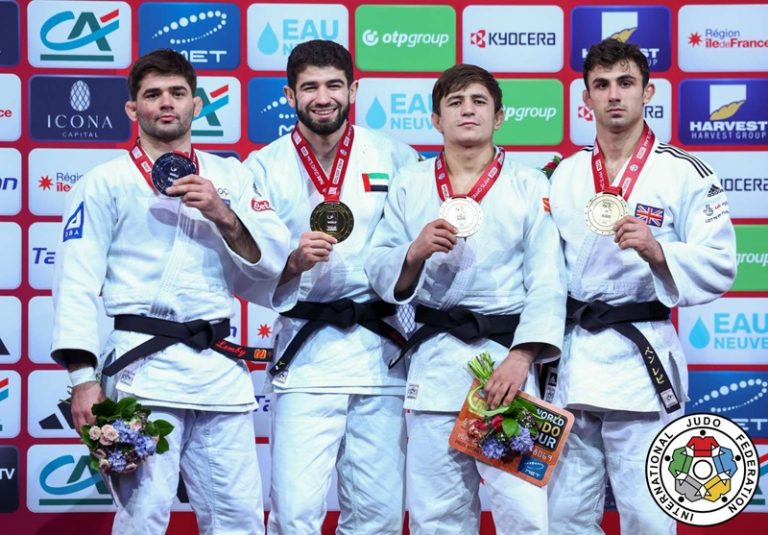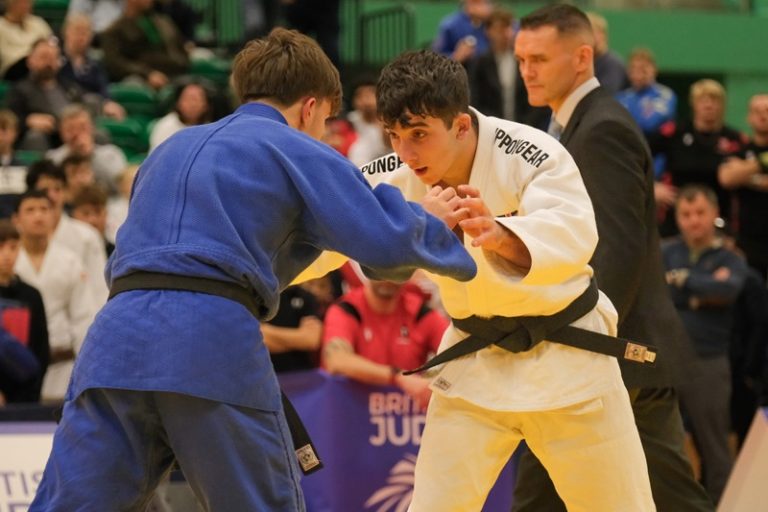British judo had been waiting a quarter of a century for this moment. Twenty-five long years without a men’s junior European champion — until Irakli Goginashvili stepped onto the tatami in Bratislava at the 2025 Junior European Championships and rewrote history. Competing for London’s Palavani Judo Club, the 19-year-old clinched gold in the fiercely contested under-73kg category, handing the United Kingdom a landmark victory and perhaps unveiling a new standard-bearer for the sport’s future on these shores.

The ultimate reward for relentless effort
From the opening round it was clear that Goginashvili was not in Slovakia merely to make up the numbers. Seeded among the favourites, he still had to dig deep in all five of his contests, overcoming tough opponents and nerve-shredding situations that would have undone many others. His campaign began in emphatic style, dispatching Cyprus’ Iakovos Kurauli with a clinical ippon in under a minute — the perfect way to build confidence.
But any illusions of a straightforward path quickly disappeared in round two. Against Moldova’s Renat Croitoru, the Briton was dragged into golden score, surviving a tense battle before finally prevailing thanks to his opponent’s third shido. In the quarter-final he faced Italy’s Lucio Tavoletta, in what turned into an exhausting nine-minute war of attrition. The physical demands nearly broke him, but Goginashvili summoned his reserves of resilience and sealed victory with another ippon.
The semi-final against Bulgarian hopeful Victor Skerlev was more controlled. A waza-ari followed by a yuko gave the Londoner a comfortable cushion, allowing him to manage the closing stages with composure and progress on points. That set up a dramatic final against Sweden’s Narek Vardanian. What followed was the most draining bout of the day: nearly ten minutes of judo, six of them in golden score, with penalties piling up on both sides and the atmosphere thick with tension. Finally, it was Vardanian’s speculative sasai-tsurikomi-ashi attempt that opened the door. Goginashvili reacted instinctively, countering smartly despite his fatigue, and launched a decisive koshi-guruma to secure the title.
This was the moment he had been chasing for years. After three previous appearances at the Junior Europeans in which he never progressed beyond the early rounds, Goginashvili admitted that the breakthrough had required a mental reset: “Before, I worried too much about what people expected of me. Today I focused only on myself, on all the work I’ve put in at training.”
A legacy rooted in family and Georgia
Born in London, Goginashvili has been immersed in judo since the age of two. His father, Levon, has been his coach from the very beginning, while his grandfather was also a judoka. Both hail from Georgia, and the young champion proudly embraces this heritage: “I live in England, but my blood is Georgian. Judo is in my family.”
This is more than a matter of identity — it is also a matter of method. Goginashvili frequently travels to Georgia for training camps, or trains with georgian athletes, where he immerses himself in gruelling randori sessions and a technical culture that has become one of the sport’s global benchmarks.
The results speak for themselves. At the Paris Olympics, Georgia underlined its reputation by taking three of its seven medals in judo: one gold and two silvers. For a nation of just 3.6 million people, the consistency is extraordinary, and it is no coincidence that Goginashvili seeks to absorb this environment, renowned for explosive, uncompromising judo and a conveyor belt of champions across every weight class.
Back in London, his day-to-day work at Palavani Judo Club is reinforced by the guidance of British figures such as Chloe Cowen-Vickers and Simon Moss. This blend of Georgian intensity and British support could prove decisive — not only for Goginashvili’s own career, but also for the revival of a discipline that has long struggled to make a sustained mark on the international men’s scene in Britain.
British judo has produced occasional flashes of brilliance, but consistency, especially on the men’s side has often been elusive. Goginashvili’s triumph changes the conversation. His victory in Bratislava offers not just a gold medal, but also a glimpse of what the future might hold if talent, mentality and infrastructure align.
As the countdown begins towards Los Angeles 2028 and Brisbane 2032, the young judoka could become a catalyst, inspiring others to believe that Britain can once again compete with the sport’s powerhouses. His path has not been easy, marked by setbacks and lessons learned, but his story is one of perseverance, resilience and self-belief.


